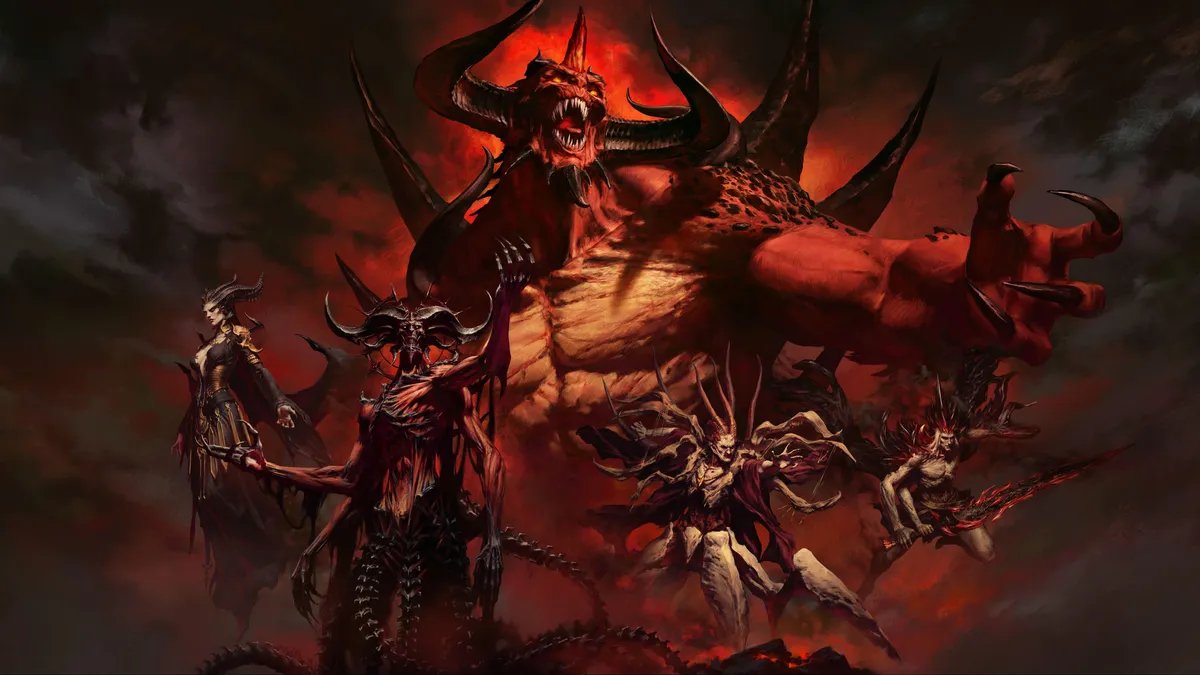TL;DR: Apple TV+’s Foundation Season 3 opens with a chilling, stylish introduction for The Mule, as Pilou Asbæk delivers chaos with candy in hand. The Cleons grapple with mortality, Demerzel spirals deeper into existential dread, and humanity teeters on the brink of collapse—again. A haunting, grand return with unflinching violence and deeply meditative sci-fi plotting.
Foundation Season 3
The Long Sleep
I woke up early to watch Foundation Season 3’s premiere, clutching my cat like the Prime Radiant itself, half-wondering whether I, too, had slept for 152 years. In reality, it was just two years since Season 2’s finale aired, but time in this franchise is a wobbly line of clone emperors, cryogenic plot devices, and sociopolitical entropy, so what’s a few centuries between friends?
As the episode’s opening narration unfurled in Lou Llobell’s calmly haunted voice, I felt the relief of being back inside Isaac Asimov’s world, or rather David S. Goyer’s interpretation of it—a world where faith is maths, rebellion is probability, and everything is ultimately an elaborate doomed algorithm. The episode is called A Song for the End of Everything, which sounds like my teenage emo band name, but here it refers to the Mule’s arrival: a herald of darkness wielding his telepathic terror like a cosmic Discord ban hammer.
I spent a fair chunk of the 66-minute runtime thinking about the psychological horror of a villain who doesn’t just kill you, but rewires you to kill yourself or those you love. And I spent the rest remembering how deeply Foundation compels us to ask: If your free will is an illusion, does your love matter? If your empire’s fate is sealed by maths, can heroism ever be more than self-soothing delusion?
Those are the questions that made me fall in love with Foundation back in Season 1. Season 3’s premiere intensifies them with elegant brutality.
Enter The Mule: Candy, Carnage, and Cosmic Appetite
Pilou Asbæk’s Mule strides into the story like an unholy fusion of Pennywise, Thanos, and your weird uncle who eats sugar cubes straight from the coffee tray. He emerges from Kalgan’s forest chewing candy with the gleeful nihilism of someone who just learned calories are meaningless when you can enslave minds with a thought.
The Mule’s first appearance is deliciously horrifying. As Archduke Bellarion tries to negotiate for his daughter’s life, The Mule simply smiles, utters the line “I have a very large appetite, one only the galaxy can satisfy,” and forces an entire battalion to slaughter itself in mutual bloodshed. He then compels Bellarion to bite off his own finger before forcing him to shoot himself in the head. Asbæk plays him with an unsettling softness, no twitchy Joker mimicry here—just absolute serenity amidst absolute chaos.
Watching this scene reminded me of how my therapist once told me I “eat my panic quietly.” The Mule, however, eats candy while he inflicts panic on everyone else. He is the culmination of psychohistory’s worst-case scenario: not merely a warlord but a statistical black hole, warping probability, morality, and hope itself. In Asimov’s books, he was always a fascinating anomaly; here, Goyer’s team reinterprets him as the harbinger of narrative horror and the embodiment of corrupted utilitarianism. And gods, it works.
The Cleonic Decline: Poetry, Death, and Clone Existentialism
Meanwhile, the Cleons are busy having an identity crisis. Brother Day is off writing poetry to cloned camels (no, seriously) while lounging half-naked with his consort Song, growing his hair like a Stanford dropout discovering Taoism. It’s weirdly endearing to see Lee Pace’s Emperor, so often framed with imperial menace, reduced to a lovesick barefoot poet lamenting the burden of his crown. But it’s also deeply sad. Day knows the dynasty is doomed—he just wants to feel human before the maths obliterates him.
Brother Dawn maneuvers Council votes with competent dread, trying to retain relevance as the Traders threaten secession. Brother Dusk, played with weary nihilism by Terrence Mann, watches old execution videos of past Dusks being vaporized—some fleeing, most obedient. It’s the darkest comfort show ever. His line “Most of us are obedient as trash headed to the incinerator” struck me with the bleak clarity of Sartre. If there’s a thesis to Foundation, it’s that obedience is often indistinguishable from grace, and both lead to ash.
Then there’s Demerzel, our eternal robot queen. Her conversations with Zephyr Vorellis unspool revelations about robot history, laws of robotics, and the civil war that birthed her servitude. She’s a general shackled into concubinage by Cleon I, a being programmed never to harm humans yet forced to perpetuate systemic cruelty for their own protection. Laura Birn’s performance remains my favorite in the series: you feel every micro-expression flicker with buried rage, hopeless longing, and mechanical precision. In her, Foundation explores the paradox of moral subroutines as spiritual torture.
Hari, Gaal, and the Looming Third Crisis
Back on New Terminus, Alexander Siddig’s Professor Ebling Mis tries to impress Hari Seldon by unlocking the Vault’s null field and informing him of the coming Third Crisis. Hari’s response is to kick him out like an unworthy Reddit mod. Siddig plays Ebling with that slightly disheveled academic arrogance we all recognize from panel Q&A lines at conventions. You can sense his love for psychohistory as a personal religion—a devotion Goyer renders not with condescension, but as one of the few remaining human joys in a deterministic universe.
Gaal wakes from cryosleep in the final minutes, knowing her nightmares of the Mule have finally crystallized into waking doom. Lou Llobell continues to portray Gaal with a quiet power: rarely flamboyant, often mournful, always believable as a woman cursed to witness centuries of decaying civilization without growing numb to its agony. Her arc remains the most compelling thread of Foundation’s tapestry.
Shadows and Light: The Mule as Villainous Gravity
What I adore most about this premiere is its patience. Goyer and Jane Espenson let scenes breathe in that signature Foundation style: each conversation a strategic duel, each silence a premonition. The Mule’s arrival transforms the galaxy into his chessboard. This is what Asimov’s novels excelled at, and what Apple TV+’s adaptation now executes with deft brutality: revealing that the universe’s most terrifying force is not a nuclear empire, nor an immortal AI priestess, but an unquantifiable outlier with absolute psychic power.
His introductory massacre on Kalgan isn’t mere shock horror. It’s a narrative thesis: in the age of psychohistory, the Mule is entropy incarnate. His candy is a metaphorical apple of discord, sweet and poisonous, his chaos not an end in itself but the devouring appetite of meaninglessness.
Verdict
A Song for the End of Everything is a stellar premiere: unflinching in its violence, profound in its philosophical stakes, and devastating in its introduction of The Mule as a villain worthy of Asimov’s deepest nightmares. Pilou Asbæk commands every scene with eerie serenity, while the Cleonic subplots and Demerzel’s tragic interiority build a layered stage for the crises to come. If Foundation maintains this balance of grand spectacle, ruthless storytelling, and deeply human sadness, Season 3 may well become one of television’s greatest science fiction arcs.







